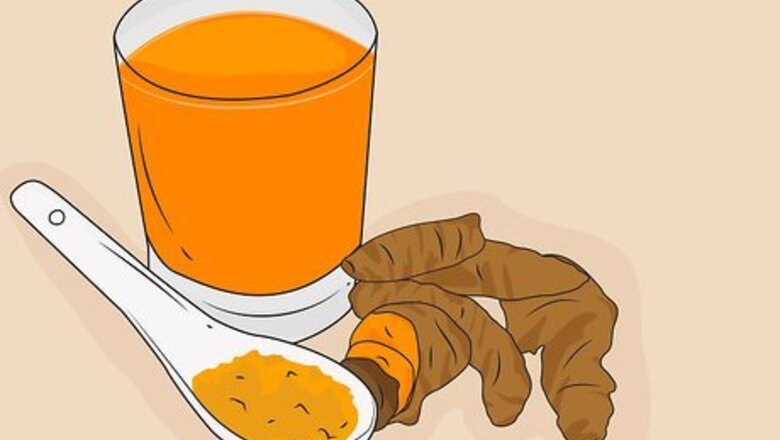
views
Choosing the Right Tea
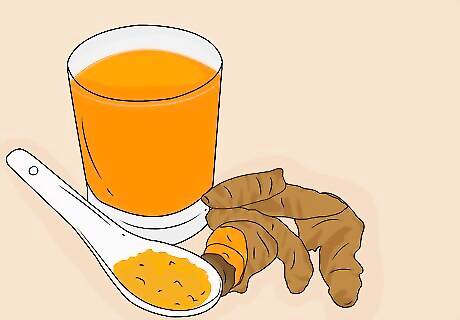
Choose turmeric for a demonstrated anti-inflammatory effect. Turmeric is a popular Asian spice that has been used to treat illness and joint pain for thousands of years. Its main component, curcumin, has known anti-inflammatory properties, so this may be your best choice for treating arthritis pain. Turmeric is safe in doses up to 2,000 mg per day. Higher doses might cause diarrhea or an upset stomach. It’s also easy to add turmeric to your food for a higher dose. Turmeric can interfere with blood-thinning medications like warfarin, so don’t use it if you’re on blood thinners.
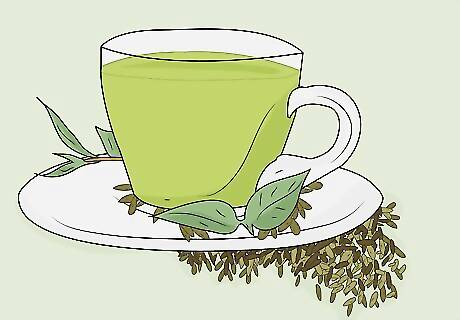
Use green, white, or black tea if you prefer some caffeine. These are the 3 most common types of tea, and studies show that all of them have anti-inflammatory effects. While they may not be as effective as turmeric, the added bonus is that they naturally contain caffeine. If you prefer a boost, then opt for one of these types. Studies show that green tea is slightly more effective than the other 2 types, but all have anti-inflammatory effects. Keep your caffeine consumption within 400 mg per day. Green, black, and white teas usually have 25-60 mg per standard cup. You can also get decaffeinated types.
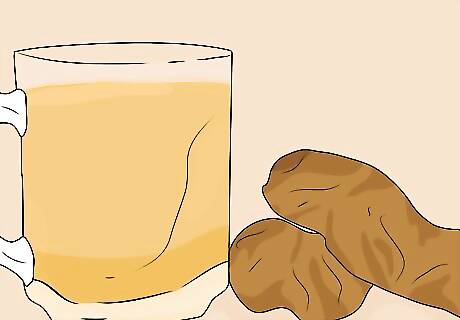
Try ginger if you prefer a unique taste. Ginger tea is another popular style that shows some success in reducing joint pain. If you prefer a more unique taste for your tea, then ginger may be the right choice. Dosage recommendations for ginger range from 500 mg to 2 g, so keep your consumption within these levels. Ginger is also effective for relieving an upset stomach, so you can also use it if you have heartburn. Studies show that ginger capsules are more effective in fighting arthritis than tea, but you can still drink the tea to see if it helps.
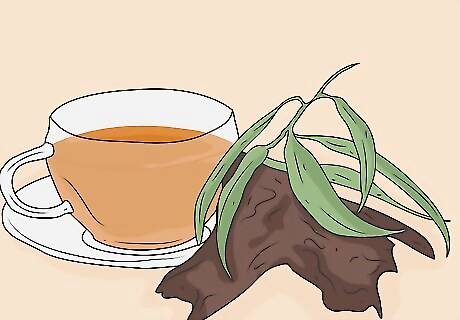
Try willow bark to see if it works for you. Willow bark is a traditional arthritis treatment, but studies don’t show that it’s effective. Some people still stick with it though, so you can try it if you want to. Common willow bark doses are 120-240 mg per day. Willow bark tastes a little bitter, like hops in a beer. Even if it doesn’t treat your arthritis, it could be an enjoyable tea.
Preparing Your Tea
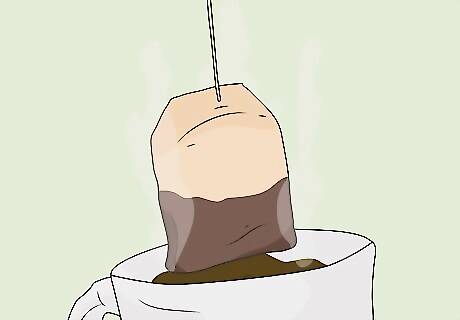
Steep teabags for a convenient option. Most teas types are available in teabags, which makes preparation simple. Simply boil some water and pour it into a mug. Then steep your teabag for 3-5 minutes and enjoy. Herbal teas usually need to steep for longer, sometimes up to 10 minutes. Check the product box for the best steeping time.
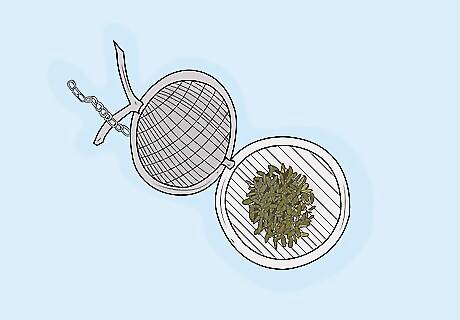
Use an infuser for loose tea leaves. Some teas come as loose leaves instead of bags. In this case, you can scoop 1-3 tsp (5-15 g) of leaves into an infuser. Then pour boiling water into a mug and dip the infuser in. Steep the leaves for 3-5 minutes, then drink your tea.
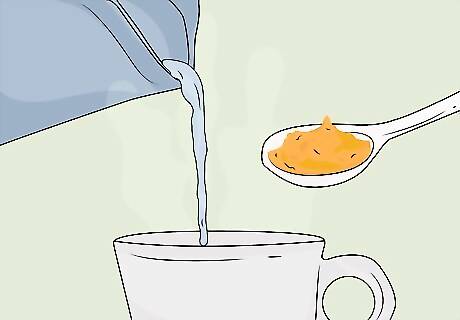
Scoop turmeric powder into boiling water for fresh turmeric tea. Making tea with fresh turmeric is easy. Boil some water and pour it into a mug. Then stir 1 tsp (5 g) of turmeric powder in and let it cool. Enjoy your tea when it’s cool enough to drink. If you aren’t used to turmeric, you might find the taste a little bland at first. Try adding some lemon and a little bit of honey to improve the flavor. Turmeric can cause yellow stains, so you might want to use a dark-colored mug. It’s also a good idea to rinse your mouth out with water afterward to prevent teeth stains. Turmeric doesn’t dissolve in water, so some powder will pool at the bottom of the cup.
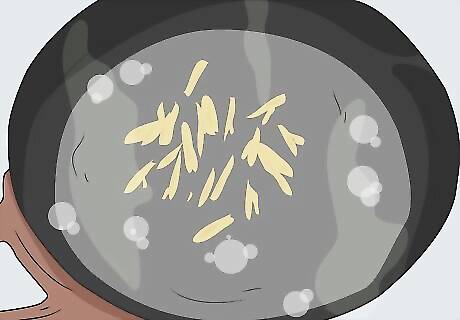
Boil 1-2 tsp (5-10 g) of ginger into a pot of water for fresh ginger tea. You can also make tea with fresh ginger, which has a stronger flavor than bagged varieties. Pour a mug’s worth of water into a pot and grate 1-2 tsp (5-10 g) of ginger into the water. Boil it for 5 minutes, then pour it into a mug to drink. You can strain out the ginger pieces if you prefer. Ginger also goes well with lemon and honey for more flavor.
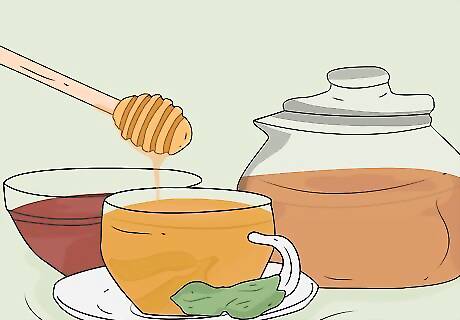
Add honey or lemon for flavor and more health benefits. Some herbal teas are a little harsh on their own, so honey and lemon can improve the flavor. They also add other health benefits. Honey adds antioxidants and can aid in digestion. Lemon adds vitamin C and also helps digestion. Try adding one or both for added benefits. While honey has health benefits, it's also sugary. Keep your added sugar intake per day below 30 g, including honey.

Sprinkle cayenne pepper into the tea for more pain relief. This might sound strange, but cayenne pepper also has pain-relieving properties that might help with your arthritis. You can sprinkle a bit into any tea for further pain relief and a unique, spicy flavor for your tea. Start by taking a pinch between your fingers and sprinkling it in. Add more if you want more spice. Cayenne is spicy, so only add a little at a time. Otherwise, you might make your tea too spicy. There are also creams containing cayenne that might help with arthritis and other body pains.
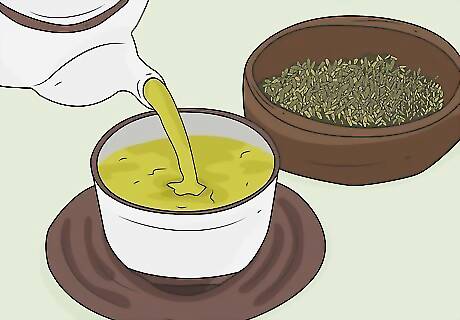
Drink 3-6 cups of tea per day to see if you experience relief. In general, this is a safe amount of tea to drink and shouldn’t cause any problems. Brew 3-6 cups each day to keep yourself supplied with anti-inflammatory nutrients to relieve your arthritis pain. If you’re drinking caffeinated tea, make sure you stop or switch to decaf at least 3 hours before you go to bed.




















Comments
0 comment